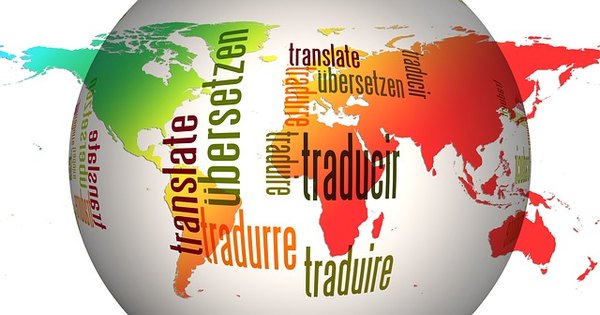
In Part one of this article we talked about how much does it cost to translate your book and how you can make sure you pick the right translator for you and your book.
Today we continue with more on book translation and its secrets.
How long does a translation take?
Translating a book, regardless of the topic or whether it Is a novel, an academic research, a poem or a song is not just a matter that can be solved with sight translation.
There are a number of things to be considered when it comes to the time the translation of the book can take.
- Actual translation time.
The actual translation time depends upon the complexity of the text. The best way to be able to make an estimate is to make a translation sample of a couple of pages. This will give the translator an idea of the type of language, need for research of terms, information, idiomatic phrases and so on, and the time it could take. The time calculated is always only an estimation. Changes may occur depending on the text and the author’s style, for instance.
- Any additional research translation time.
- Editing, which is usually done by a third person or the publisher’s editor.
- Time for the translator and author to read copyedited manuscript and respond to editor’s queries, if any.
- Making changes to the edited text. Usually, the translator is in charge of making all changes and works in collaboration with the editor, however this must be stipulated on the contract agreed by both translator and author.
- Reading of the final proof.
Tip: Have everything you need translated. This includes your book description and bio.
Copyright and translation contracts
In general terms, translations are considered “Derivative words” and, accordingly (see Copyright of derivative works), the translator is the author of the translation with the following rights:
-
The right to copyright the translation in his/her name
-
The right to have his/her authorship in the published translation and in all publishing materials
-
The right to adequate compensation and/or royalties.
Authors hardly ever hold the foreign rights to published works.
Sometimes publishers, as part of the publishing agreement, hold the copyright for selling the book in its original language and in any other language it is published.
In such cases, if the publisher decides to have the work translated, it will usually hire translators under “work for hire” contracts. Usually, in these cases, the translator gives up all his/her copyright and receives no additional compensation nor royalties.
For further information on copyrights, particularly in the USA, you may consult https://copyright.cornell.edu.
If this is not your case, you may transfer copyright to the translator and retain some specific rights, such as the granting of non-exclusive license for other users, the determination of the scope of license rights, or you may simply decide to hire someone under the “work-for-hire agreement”, whereby you, as the author and employer, holds the rights of “Fair Use”.
You can read more about it here.
Whenever you have decided to hire a translator to translate your works or you have found a publisher that will do it, it is highly advisable to consult with a copyrights lawyer at all times. Regardless of the many sample model contracts you may find all over, you must absolutely ensure that the contract you write includes whatever you wish.
Contracts differ depending on what the author/publisher and the translator wishes to include, however, some of the issues to be added in any contract are and which the translator will surely request are:
-
Translator’s basic rights: which include:
- have work copyrighted in his/her name;
- Translator’s name to appear in the title page and all publicity;
- Retention of right to translation after a set period.
-
Payment mode
- Royalties and royalties calculation;
- Flat fees;
- Payment schedule;
- Transfer rights clause;
- % Proceed;
- Whether fees depend upon the reception of a grant to fund translation.
-
Indemnity clause
-
Laws governing the contract: Copyright contracts are governed by the Berne Convention to which most countries of the world are part of. However, you may want to have specifically noted which laws govern the contract in case a dispute arises.
-
Rates
-
Duration of copyright
-
Subsidiary rights – Audiobook, film, television, drama
-
Editing and acceptance
- How to determine whether translation is acceptable
- Translator’s approval for changes made in editing. Sometimes, substandard changes are proposed upon editing. You might want to have the translator have a final word on that.
As stated above, only you, the translator and/or publisher, and your copyright lawyer will define what the contract must include.
However, to get a better idea, you may consult Writers Boon Book Translation model contract.
For additional information on copyrights, here are some other sites that may be of interest to you.
- ATA copyright:
http://www.ata-divisions.org/LD/index.php/tips-copyright/
- https://www.artslaw.com.au/articles/entry/translations/
- https://www.copyright.com.au
- International copyrights:
https://www.copyright.com.au/about-copyright/international-copyright/
- Understanding copyrights and licenses:
https://www.smashingmagazine.com/2011/06/understanding-copyright-and-licenses/
In all cases, the advice for a copyright lawyer is mandatory, or at least, highly desirable.
Tip of the Day:
If you're a writer in need of an experienced translator, but you would like to minimize your editing costs, please take a look at Writers Boon discounted marketplace. You will find amazing translators who worked with authors from the Big 5 Publishing houses willing to offer 15% to 30% discount on their regular fees.
Next week's article: How To Get Your Book Translated - Part 3